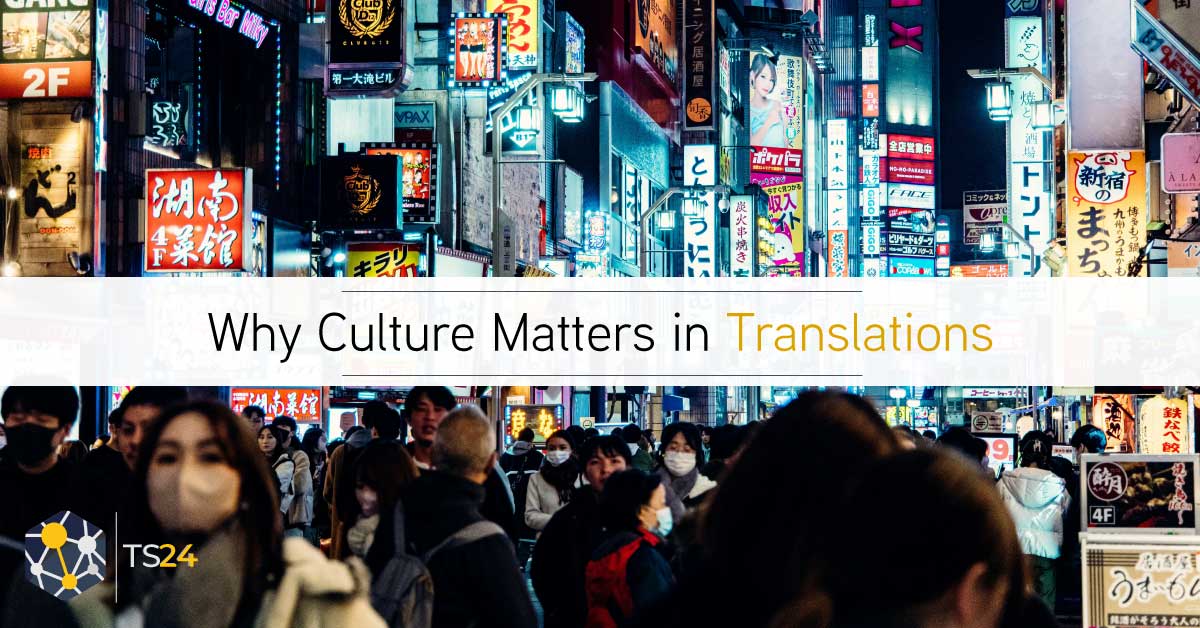Why Cultural Awareness Is the Key to Successful Global Translations
There’s a well-known game of ‘telephone’, where one person whispers a message, and by the time it reaches the last person, it’s usually hilariously off-track. Now, consider that happening in business. Instead of a silly misunderstanding, it’s a deal gone wrong or a marketing campaign that backfires. Accurate and reliable translation services are what carry the meaning and intent across markets and cultures effectively.
Companies expanding globally can’t afford to treat language as a one-size-fits-all equation. A message that works brilliantly in one country might flop (or worse, offend) in another. That’s why cultural understanding matters! So, how do businesses ensure their translations actually speak to the audience? By understanding culture as much as they understand words. Let’s break it down.
EXPERT’S TIP: Discover why project managers are a crucial part of a successful translation process.
Your Brand’s Reputation is on the Line
There’s a dangerous myth in business: as long as people ‘kind of’ understand what you’re saying, you’re good. Well, wrong! Besides causing confusion, a bad translation tells your audience that you just don’t really care about their market. And nothing kills trust faster than a company that looks indifferent.
Want proof? Let’s talk about Parker Pens. The brand tried to market in Mexico with the tagline, “It won’t leak in your pocket and embarrass you.” A sloppy translation turned it into “It won’t leak in your pocket and make you pregnant.” Not quite the selling point they were going for!
Or how about Clairol, the beauty brand that introduced a curling iron called the “Mist Stick” in Germany? Only one problem: “mist” in German means… manure. So, essentially, they were selling a “manure stick” for your hair. Lovely. Such mistakes are reputation nightmares. A mistranslation can make your brand look careless at best (or downright offensive at worst). That’s why cultural understanding and expert localisation are everything.
Lost In Translation? It Could Cost You Big…
Even the most prominent brands can fumble when they ignore cultural context. When they do, it’s a direct hit to their bottom line. Or consider Pepsi in China. They tried translating their slogan, “Come alive with the Pepsi Generation.” What did they get instead? “Pepsi brings your ancestors back from the dead.” Such cultural missteps can cost your brand sales and credibility.
The Legal and Financial Risks of Getting It Wrong
A bad translation can land your company in serious legal trouble. Miscommunication in global markets can trigger lawsuits and regulatory fines. Consider medical translations. If a pharmaceutical company mistranslates dosage instructions or side effects, it’s life-threatening negligence. In fact, in 2009, a medical device company faced lawsuits after a poorly translated manual led to incorrect use of their product, causing patient harm. The cost? Millions in legal fees and a recall that tanked their credibility.
Then there’s regulatory compliance. Every country has strict rules about product labelling and safety warnings. In 2011, HSBC had to launch a $10 million rebranding campaign after its slogan, “Assume Nothing,” was mistranslated as “Do Nothing” in multiple countries. It sent the wrong message and cost them dearly. This makes it clear that ignoring cultural sensitivities not only slows down expansion but may end it entirely. The cost of getting it wrong is, potentially, everything.
EXPERT’S TIP: Do you need to translate user-generated content? Here’s an in-depth guide to help you get it right!
Culture Can Speak Louder Than Words
Translation is only half the battle. Understanding how people communicate is just as important. If you don’t take the time to learn cultural sensitivities, you could unintentionally offend the very audience you’re trying to win over.
Let’s explain this with an example. In the U.S. and much of Europe, maintaining eye contact signals confidence and honesty. But in Japan and South Korea? Too much eye contact can come off as disrespectful. Wouldn’t it be downright unpleasant to walk into a meeting thinking you’re building trust when, in reality, you’re making everyone uncomfortable? Even something as simple as a thumbs-up emoji can backfire.
In Western cultures, it’s a universal symbol for “great job.” But in parts of the Middle East, it’s an obscene gesture — basically the equivalent of flipping someone off. Words matter, but actions speak volumes. So, if you’re expanding globally, cultural understanding is pretty essential. Fortunately, working with language experts can guarantee cultural sensitivity, regardless of whether your content is translated by human translators or a machine translation service.
Think Global, Act Local (The Right Way)
When expanding into new markets, you’ve got to go the extra mile to respect the customs of the people you’re trying to reach. One wrong move could alienate potential customers or even cause a PR disaster.
So, how do you ensure you’re hitting all the right notes without missing a beat? You partner up with a professional translation service provider. A reliable translation service provider can help you with global expansion by ensuring you’re not just in the market but truly a part of it. They deeply understand the target market’s traditions and local values.
Let’s talk about some real-world examples of how that happens. When McDonald’s entered India, it reworked its menus. India is a country where beef is a no-go for religious reasons. As such, the brand created a menu with chicken, lamb, and vegetarian options.
That attention to local preferences was precisely what McDonald’s needed to capture the attention of its audience. Similarly, Nike made waves in China by featuring local sporting heroes in their campaigns, which led to instant emotional connections.
A professional marketing translation service provider takes the time to research the market thoroughly and create a plan to help you succeed (Global brands that have expanded into new markets are examples).
The Bottom Line: Speak to Culture, Not Just Words
Let’s wrap it up with a hard truth: being “understood” isn’t enough in the global market. You want to be felt and connected with. And that’s where cultural understanding takes the lead.
Every culture has its own set of values. So, while your product might be top-notch, how you communicate can make or break the deal.
Without the right translation, things can quickly get awkward and probably a little embarrassing. So, when deepening your global footprint, always remember you’ve got to make sure your brand speaks the language of the people you’re targeting.
About TS24 Translation Agency
Translation Services 24 (TS24) is the UK’s leading translation agency in London with professional translators working in over 200 languages. We provide services to clients in all corporate and public industries and specialise in sector-specific linguistic solutions. With over a decade of experience in the industry, 15+ million words converted every year and 100,000+ projects completed, TS24 is a leading provider of expert translations and interpretation services and an officially certified member of the ATC. Contact TS24 here. You can also read all of our recent articles here.
Follow Translation Services 24 on Social Media






